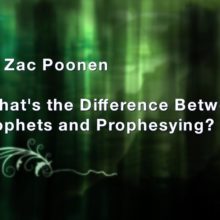Revenge of the She-Punks
ⁿᵃᵗᵃˡ.ᶦⁿᵈᶦᵛᶦᵈᵘᵃˡᵒᵍᶦˢᵗ.ᶜᵒᵐ
ɪɴᴅɪᴠɪᴅᴜᴀʟᴏɢɪꜱᴛ ɴᴀᴛᴀʟ ᴄʜᴀʀᴛ
ʏᴏᴜʀ ᴀꜱᴛʀᴏʟᴏɢʏ ᴄʜᴀʀᴛ ʀᴇᴠᴇᴀʟꜱ ʏᴏᴜʀ ᴅᴇꜱᴛɪɴʏ...
ᴀ ᴄᴏᴘʏ ᴏꜰ ʏᴏᴜʀ ʙɪʀᴛʜ ᴄʜᴀʀᴛ ᴡɪʟʟ ʙᴇ ꜱᴇɴᴛ ᴛᴏ ʏᴏᴜʀ ᴇᴍᴀɪʟ ᴀᴅᴅʀᴇꜱꜱ. ᴘʟᴇᴀꜱᴇ ᴇɴᴛᴇʀ ᴀɴ ᴇᴍᴀɪʟ ᴀᴅᴅʀᴇꜱꜱ ᴛʜᴀᴛ ʏᴏᴜ ᴀᴄᴛɪᴠᴇʟʏ ᴜꜱᴇᴅ ɪɴ ᴏʀᴅᴇʀ ᴛᴏ ʀᴇᴄᴇɪᴠᴇ ʏᴏᴜʀ ꜰʀᴇᴇ ʙɪʀᴛʜ ᴄʜᴀʀᴛ ʀᴇᴀᴅɪɴɢ.
ʳᵉᶜᵉᶦᵛᵉ ᶠʳᵉᵉ ᵍᵘᶦᵈᵃⁿᶜᵉ ᵗʰʳᵒᵘᵍʰ ᵒᵘʳ ᵈᵃᶦˡʸ ʰᵒʳᵒˢᶜᵒᵖᵉ ʳᵉᵃᵈᶦⁿᵍ. ᵈᶦˢᶜᵒᵛᵉʳ ᵃᶜᶜᵘʳᵃᵗᵉ ᵖʳᵉᵈᶦᶜᵗᶦᵒⁿˢ ᵃᵇᵒᵘᵗ ʸᵒᵘʳ ᶠᵘᵗᵘʳᵉ ʷᶦᵗʰ ᵈᵃᶦˡʸ ʰᵒʳᵒˢᶜᵒᵖᵉˢ!
As an industry insider and pioneering post-punk musician, Vivien Goldman’s perspective on music journalism is unusually well-rounded. In Revenge of the She-Punks, she probes four themes—identity, money, love, and protest—to explore what makes punk such a liberating art form for women. With her visceral style, Goldman blends interviews, history, and her personal experience as one of Britain’s first female music writers in a book that reads like a vivid documentary of a genre defined by dismantling boundaries. A discussion of the Patti Smith song “Free Money,” for example, opens with Goldman on a shopping spree with Smith. Tamar-Kali, whose name pays homage to a Hindu goddess, describes the influence of her Gullah ancestors on her music, while the late Poly Styrene’s daughter reflects on why her Somali-Scots-Irish mother wrote the 1978 punk anthem “Identity,” with the refrain “Identity is the crisis you can’t see.” Other strands feature artists from farther afield (including in Colombia and Indonesia) and genre-busting revolutionaries such as Grace Jones, who wasn’t exclusively punk but clearly influenced the movement while absorbing its liberating audacity. From punk’s Euro origins to its international reach, this is an exhilarating world tour.
GBS_insertEmbeddedViewer(“sk-MDwAAQBAJ”, 500,400);
And More Than 10ᴋ Happy Customers…WE ARE BACK On Popular Demand! Redefine Profitability With The World’s Easiest & Most Popular Video Animation Software It’s ʙɪɢɢᴇʀ. ʙᴇᴛᴛᴇʀ. ᴀɴᴅ ꜰᴀꜱᴛᴇʀ.









